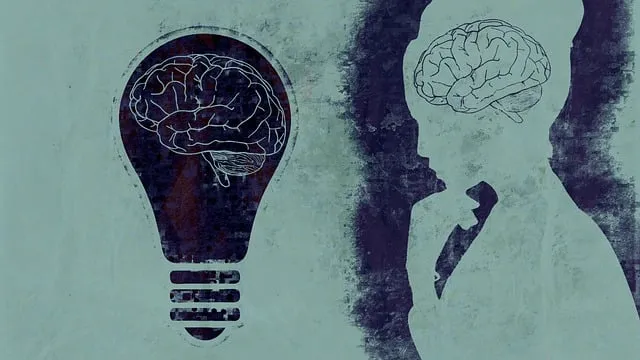Westminster Kaiser Permanente behavioral health providers prioritize social skills training as a key element of holistic mental wellness care. They integrate evidence-based practices like CBT and mindfulness with interactive techniques such as role-playing to empower clients in managing relationships, resolving conflicts, and regulating emotions. This comprehensive approach supports diverse populations, from depression prevention to chronic condition management, fostering self-worth, emotional intelligence, and supportive networks.
Social skills training is a powerful tool in managing mental health conditions, fostering better interactions, and enhancing overall well-being. This comprehensive guide explores how individuals with various mental health challenges can benefit from structured social skills development. We delve into the significance of these skills, particularly through the lens of Westminster Kaiser Permanente behavioral health providers, who play a pivotal role in delivering effective training methods. Learn about practical strategies for real-world application and support to improve social interactions.
- Understanding Social Skills and Mental Health
- The Role of Westminster Kaiser Permanente Behavioral Health Providers
- Training Methods for Effective Social Interaction
- Real-World Application and Support Strategies
Understanding Social Skills and Mental Health

Social skills are essential for navigating relationships and daily life, and their significance is often overlooked when addressing mental health concerns. At Westminster Kaiser Permanente behavioral health providers, understanding this connection is key to holistic care. Mental health conditions can impact an individual’s ability to engage in meaningful social interactions, leading to feelings of isolation and exacerbating symptoms of depression or anxiety.
By integrating social skills training into therapeutic practices, mental wellness coaching programs development becomes more effective. This approach helps individuals learn and practice communication strategies, assertiveness, empathy, and conflict resolution skills, all of which contribute to building healthier relationships and preventing burnout. Such initiatives cater to diverse populations, offering tailored support for those struggling with depression prevention or managing chronic conditions that impact social functioning.
The Role of Westminster Kaiser Permanente Behavioral Health Providers

Westminster Kaiser Permanente behavioral health providers play a pivotal role in promoting mental well-being and offering comprehensive care for individuals navigating mental health conditions. These professionals are equipped to address a wide range of issues, from anxiety and depression to trauma and substance use disorders. They utilize evidence-based practices, including cognitive-behavioral therapy (CBT), mindfulness meditation, and self-care strategies, to empower patients with the tools they need for long-term recovery and improved quality of life.
The behavioral health providers at Westminster Kaiser Permanente are committed to fostering Mental Health Awareness and creating supportive environments that encourage open dialogue about mental illness. Through individual therapy sessions, group support programs, and education on Self-Care Practices, they enable clients to develop coping mechanisms tailored to their unique needs. This holistic approach ensures that patients not only manage their symptoms but also cultivate resilience, self-acceptance, and a deeper understanding of their mental health.
Training Methods for Effective Social Interaction

Social skills training plays a pivotal role in managing and improving mental health conditions, offering individuals the tools to navigate social interactions with confidence. Westminster Kaiser Permanente behavioral health providers employ diverse training methods to ensure comprehensive care. These often include role-playing scenarios, where patients practice difficult conversations or assert their needs in safe, simulated environments. Such exercises foster emotional regulation, helping individuals manage their reactions during challenging social exchanges.
Additionally, group therapy sessions facilitate the development of conflict resolution techniques, crucial for maintaining healthy relationships. By engaging with peers facing similar challenges, participants learn to communicate openly, reduce stigma associated with mental illness, and build supportive networks. Through these interactive methods, behavioral health providers at Westminster Kaiser Permanente equip individuals with the skills to thrive in social settings, enhancing their overall well-being.
Real-World Application and Support Strategies

In real-world scenarios, social skills training for mental health conditions is best implemented through practical exercises and ongoing support. Westminster Kaiser Permanente behavioral health providers emphasize the importance of teaching clients adaptive strategies tailored to their unique challenges. This involves role-playing situations commonly encountered in daily life, allowing individuals to practice communication, conflict resolution, and coping mechanisms in a safe environment. By fostering emotional intelligence and inner strength development, these sessions empower individuals to navigate social interactions with confidence and resilience.
Additionally, integrating Mind Over Matter principles can be transformative. Clients learn to reframe negative thoughts and beliefs, replacing them with positive affirmations that promote self-worth and emotional regulation. Support strategies include ongoing coaching, peer support groups, and access to digital resources, ensuring a comprehensive approach to social skills development beyond traditional therapy sessions.
Social skills training plays a pivotal role in enhancing mental well-being, especially for individuals managing various conditions. As demonstrated by the expertise of Westminster Kaiser Permanente behavioral health providers, structured programs can equip people with the tools to navigate social interactions confidently. By combining evidence-based training methods with real-world application support, these strategies offer a holistic approach to improving social functioning. This comprehensive guide illuminates the significant impact such training can have, fostering better connections and an improved quality of life for those facing mental health challenges.






